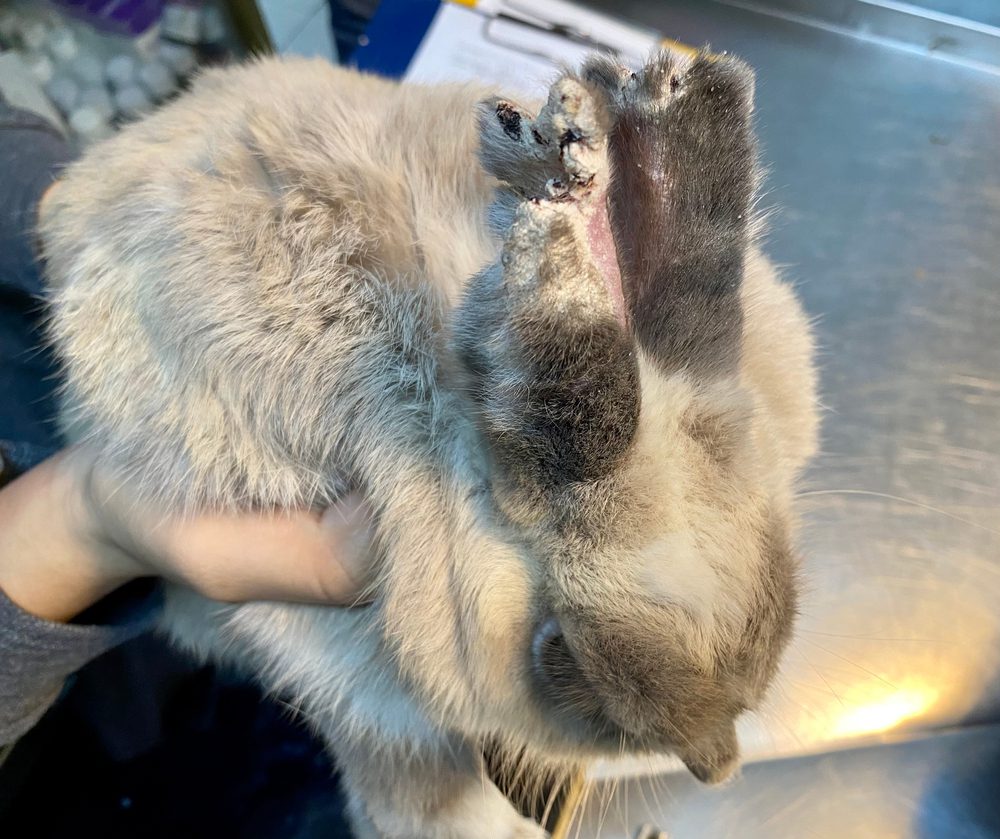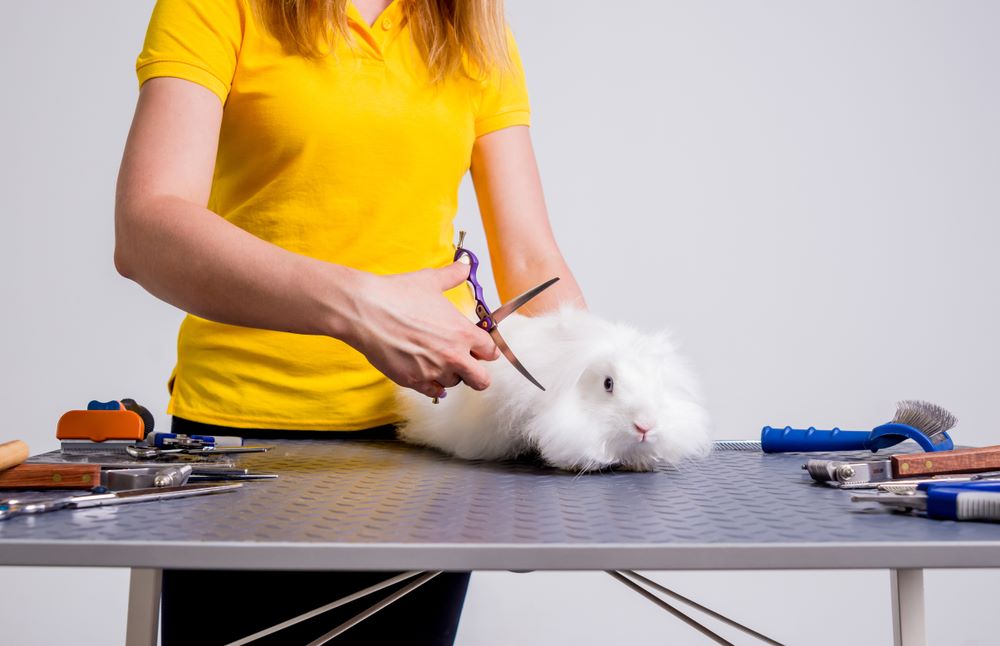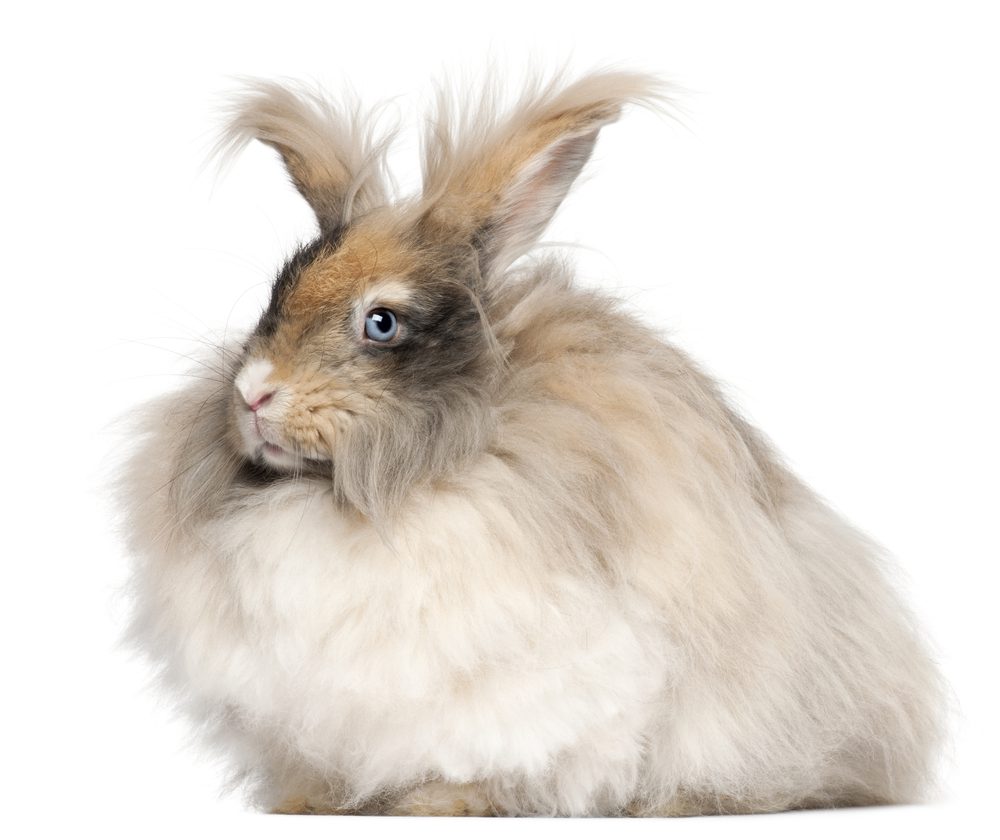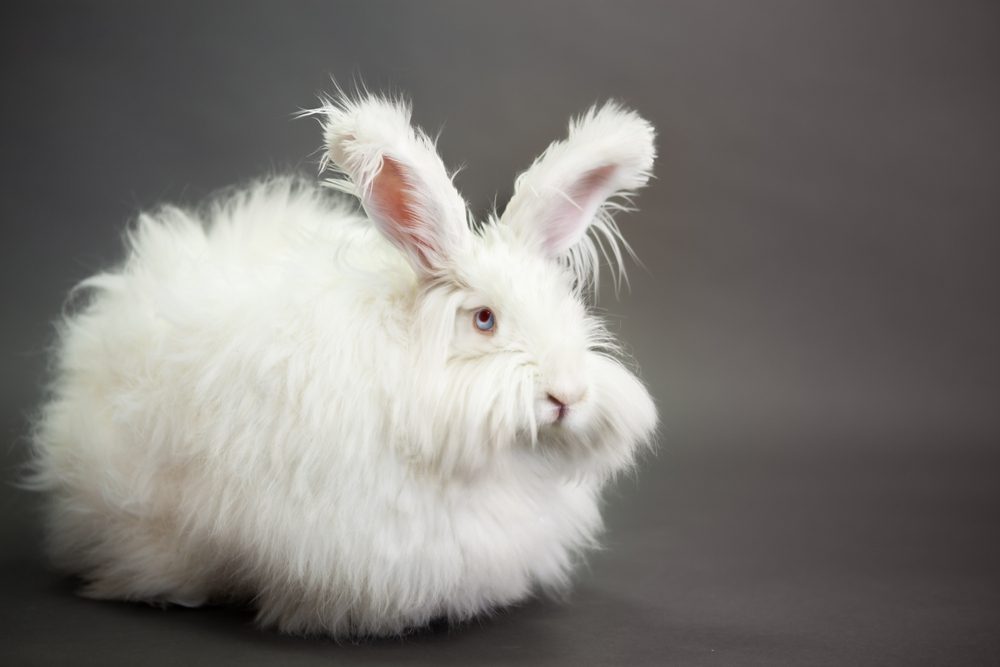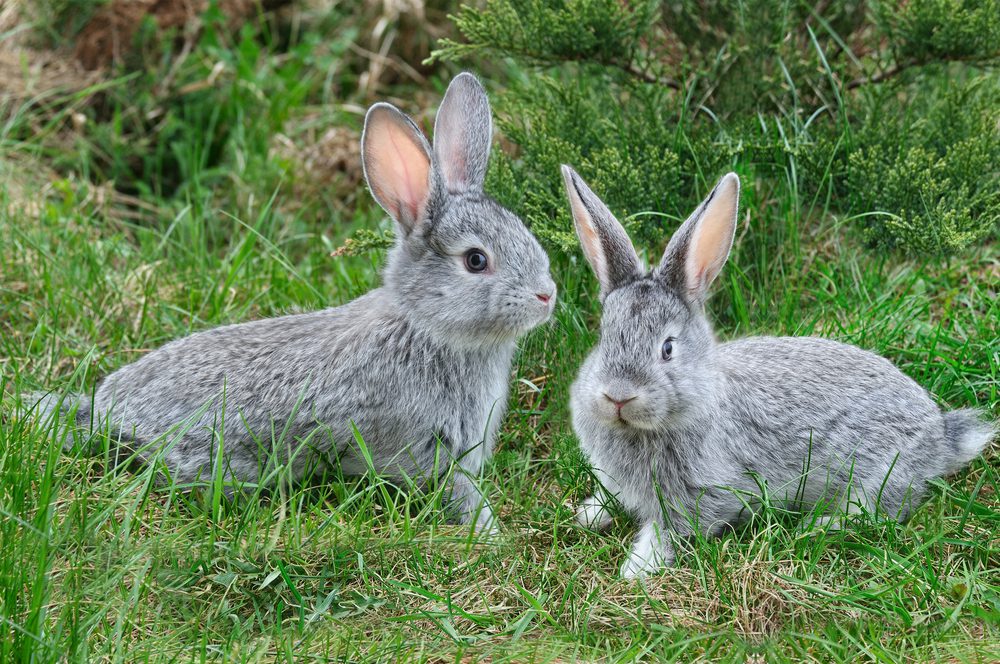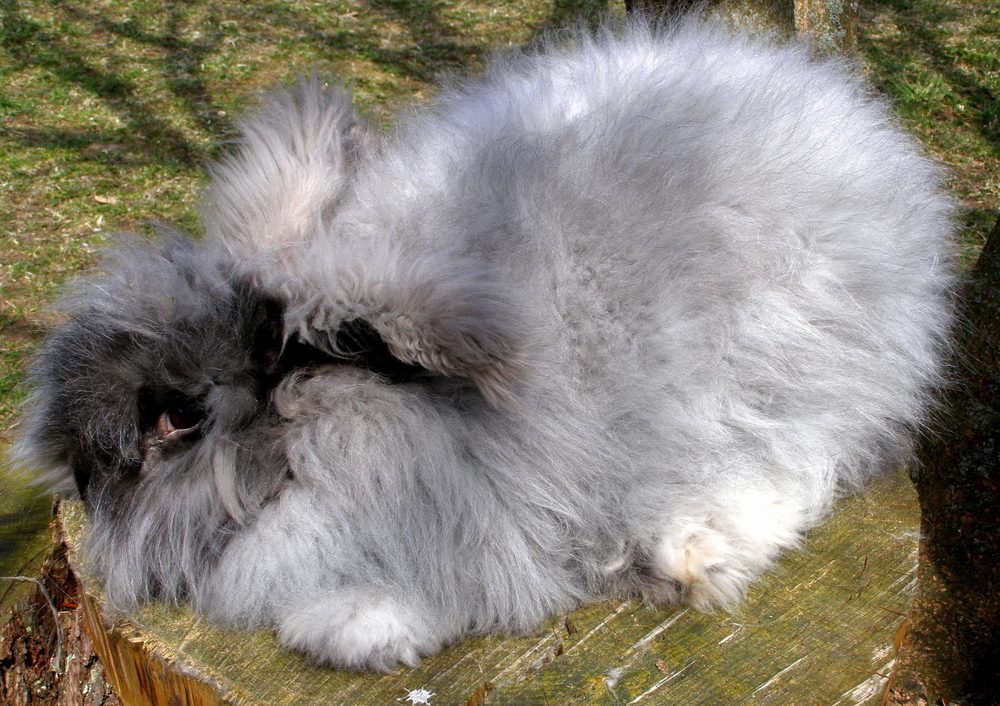Are Rabbits Hypoallergenic? Uncover The Secret Now!
This article features carefully selected affiliate links to guide you in choosing the best products for your bunny, ensuring a happy and healthy pet experience.
Are you sneezing every time you cuddle with cute, fluffy animals? Ever wonder if there’s a furry friend out there that won’t make your nose twitch and eyes water? Imagine a world where you could have a pet without constantly reaching for a tissue! Welcome to the curious and often misunderstood world of rabbits and allergies. In this article, we’re diving into a question that many animal lovers and allergy sufferers ask: “Are rabbits hypoallergenic?
We know you love pets but hate the sniffles, so let’s unravel this mystery together. We’ll explore hypoallergenic and whether these hoppy, adorable creatures fit the bill. We’ve covered everything, from the science behind pet allergies to the lowdown on rabbit fur and dander. Plus, for those who dream of a bunny companion, we’ll share tips on managing allergies and choosing the right rabbit breed. So, grab your detective hat – it’s time to hop into the world of rabbits and discover if they can be your allergy-friendly pals!
Are Rabbits Hypoallergenic? Exploring the Facts
Understanding “Hypoallergenic”
Have you ever heard the term “hypoallergenic” and wondered what it means? It sounds super scientific, but it’s pretty simple. “Hypoallergenic” means something is less likely to cause an allergic reaction. It doesn’t mean allergy-free, but it’s like a friendly sign saying, “Hey, I’m less likely to make you sneeze!”
Rabbits and Allergies
Now, let’s hop into the world of rabbits. You might think these furry friends are hypoallergenic, but the truth is a bit more complicated. Rabbits themselves aren’t the leading cause of allergies. Their fur and dander – those tiny flakes of skin – can stir up trouble for some people. When you cuddle a rabbit, these tiny particles can float in the air and tickle your nose, leading to sneezes and sniffles.
Science time! Rabbit fur is soft and adorable, but it’s also a home for dander. And here’s something interesting: rabbit fur can collect other allergens like pollen and dust. So, when you’re near a rabbit, you’re exposed to their dander and these other sneaky allergens hitching a ride on their fur.
Not all bunnies will affect you the same way. Some people might find particular rabbit breeds more allergy-friendly than others.
So, are rabbits hypoallergenic? The answer is not a simple yes or no. While they can be less allergy-inducing than some pets, it’s important to remember that they can still cause allergic reactions in some people. But don’t worry. In the upcoming sections, we’ll dive into how you can manage these allergies and enjoy the company of these adorable creatures!

Rabbit Breeds and Allergy Considerations
Did you know there are tons of different rabbit breeds? Just like dogs and cats, rabbits come in all shapes and sizes. Some have long, fluffy fur, while others have short, sleek coats. Each breed is unique, and this can affect how they impact allergies.
More Allergy-Friendly Rabbits?
You might wonder if some rabbit breeds are better for people with allergies. Well, it’s a bit tricky. While no rabbit breed is entirely hypoallergenic, some people find certain breeds easier to handle. Like the Rex rabbit, breeds with shorter fur might not shed as much. Less shedding can mean fewer allergens floating around.
Choosing the Right Rabbit
Don’t lose hope if you have allergies but still dream of a bunny buddy! Here are some tips:
- Spend time with different breeds to see how you react.
- Remember, every person’s allergies are different.
- Think about a rabbit’s size and fur type. Smaller rabbits with less fur might be easier to manage.
Tips for Allergy Sufferers
Even if you’re sensitive to allergies, you can still enjoy having a rabbit. Here are some quick tips:
- Keep your rabbit’s living area clean.
- Groom your rabbit regularly (outside, if possible).
- Use air filters to keep the air in your home clean.
Managing Allergies as a Rabbit Owner
Keeping It Clean: Reducing Allergens
Imagine your rabbit’s home is like your bedroom. Just as you don’t like a messy room, your rabbit doesn’t either. Keeping their space clean is super important. Regular cleaning cuts down on dander and fur in the air. This means less sneezing for you! So, sweep up that hay and fur and keep their area tidy.
Your Allergy-Fighting Toolkit
You can be a superhero against allergies with the right tools! Here’s what you need:
- A vacuum with a HEPA filter: This is like a magic wand that catches tiny allergens.
- Air purifiers: They clean the air around you, just like a filter in a fish tank keeps the water clean.
- Allergy medication: Sometimes, a little help from medicine can make a big difference.
Grooming Your Furry Friend
Grooming your rabbit isn’t just about making them look cute. It’s like a secret weapon against allergies. Brushing them regularly, especially outside, removes loose fur before it can float around your home. Plus, it’s a great way to bond with your bunny!
Lifestyle Tweaks for Allergy Sufferers
Making small changes in your daily life can help a lot. Try these:
- Please wash your hands after handling your rabbit or cleaning their space.
- Keep some rooms, like your bedroom, rabbit-free zones.
- Wear a mask when cleaning the rabbit area if you’re super sensitive.
Professional Advice
Talking to experts like allergists and veterinarians is like getting a map to find the treasure, which, in this case, is keeping both you and your rabbit happy and healthy.
Allergists: Your Allergy Guides
Allergists are like detectives for allergies. They can help you understand:
- What exactly you’re allergic to?
- How to manage your allergies.
- Whether a rabbit is a good pet for you.
They can even do tests to determine what triggers your sneezing and itching.
Veterinarians: Rabbit Health Heroes
Veterinarians know all about rabbit health. They can teach you:
- How to keep your rabbit healthy.
- Tips for grooming and cleaning your rabbit.
Tips for Your Visit
When you visit an allergist or veterinarian, remember:
- Be clear about your concerns and symptoms.
- Ask questions. No question is too small!
- Write down their advice so you can remember it later.
Alternative Solutions for Allergy Sufferers
Finding the Right Pet for You
Sometimes, even with all the care and precautions, having a rabbit might not work out if your allergies are too strong. But don’t worry; other pets can be great companions, too. Let’s explore some allergy-friendly alternatives that might suit you better.
Hypoallergenic Pet Options
- Fish: They swim quietly in their tanks without fur, dander, or sneezing!
- Reptiles: Like turtles or lizards. They don’t have fur, so they’re often easier on allergies.
- Specific Dog and Cat Breeds: Some breeds are known to be more hypoallergenic than others. But remember, it’s always good to spend time with them first to see how your allergies react.
Balance is Key
Finding a balance between your love for animals and managing your allergies is essential. It’s okay if you can’t have a rabbit. There are many other ways to enjoy pets. Remember, finding a pet that brings you joy without causing sniffles and sneezes is the goal.
Conclusion
Remember the key caves we’ve explored as we hop to the end of our rabbit journey. We started by unraveling whether rabbits are hypoallergenic, learning that while they aren’t entirely allergy-free, some breeds might be more suitable for allergy sufferers. We dived into understanding allergies, especially how rabbit fur and dander play a role, and discovered that every person’s reaction can be different.
Choosing the right rabbit breed is crucial, considering their unique characteristics and how they might affect your allergies. We’ve equipped you with strategies for managing allergies as a rabbit owner, emphasizing the importance of cleanliness and grooming. We’ve emphasized that consulting with allergists and veterinarians is essential in ensuring you and your rabbit enjoy a healthy life together. And if a rabbit isn’t the right fit, we’ve explored alternative pets that can bring joy without the sniffles.
Providing straightforward, valuable answers to your pressing queries. And for first-time rabbit owners, especially those with allergies, we shared practical tips to ensure a smooth and enjoyable experience.
Now, it’s time for you to take action. If you’re considering a rabbit as a pet, use this guide as your roadmap. Remember, the right pet can bring immense joy and companionship into your life. Approach this journey with curiosity and care, and you’ll find the perfect furry friend who fits into your world, sneezes or no sneezes. Here’s to starting a new chapter with a hop, skip, and jump.

